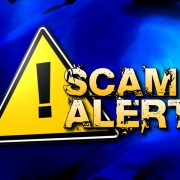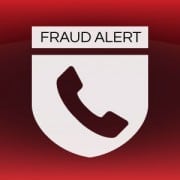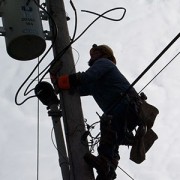Don’t fall victim to energy scams
By T.J. Kirk
Across the U.S., cases of fraud and identity theft are at all-time highs. In 2014 alone, there were over 40,000 cases of phone- or utilities-related fraud, or 118 cases every day. Energy scams are becoming more sophisticated and prevalent, and it’s possible for anyone to be tricked by them. The best way to stay safe is to be aware of some of the common ploys, be suspicious of free energy claims and to contact your electric cooperative if anything seems amiss.
Phone scams
In summer of 2012, thousands of consumers from coast-to-coast, including members at electric cooperatives, fell prey to a telephone scam promising bogus help with energy bills. The criminals claimed that President Obama had authorized a special federal program to pay electric bills. Then, they asked each victim to provide personal information, such as a bank routing number or a Social Security number to receive the payment. Although this particular scam has run its course, scammers are always coming up with new stories to steal consumers’ personal information.
We’ve all come to realize that today is not the day a Nigerian prince gives us his fortune, but many people don’t realize how much more sophisticated scam emails have become. Many of these emails will mimic emails from legitimate sources and contain personal information such as your name, address, bank name and more. Unfortunately this information is not difficult to find and can make otherwise sensible people send back sensitive information or click a link in the email. If you open an email that you suspect is a scam or asks for private information, you can always call your utility to confirm its authenticity. Just don’t click the link first.
Door to door
Even in the digital age, there are still scams being perpetuated face to face. Typically these scams target the elderly or people who may not speak English well, who may be easier to intimidate. Claiming to be from the utility (or associated in some way), they will tell you that something is wrong (bill past due, equipment missing or broken) and that you need to pay them money immediately or be disconnected. Electric cooperatives do not demand payment like this in the field and do not go to a member’s house unless there is a scheduled appointment. Again, if you want to check if the person at your door is a utility employee, call your electric cooperative.
Product scams
We’ve all been taught that if it sounds too good to be true, it probably is. This is almost always the case with “miracle” devices that claim to reduce energy use without providing a sensible explanation for how they work. In May 2008, the Texas Office of Attorney General took legal action against a firm offering what it called the Xpower Energy Saver or Mega Power Saver – a $300 small gray box that plugged into an electrical outlet at your home and promised to cut electric bills by 10 percent. Testing by the University of Texas in Austin revealed these devices couldn’t deliver their promised savings. In addition, the lab revealed that the products are, in reality, ordinary capacitors. Capacitors are regularly used by electricians, and they can be purchased for less than $20. While this gadget is now off the market, you can be sure that similar products will spring up to take its place.
Avoid energy scams with these tips:
- Always guard your personal accounting and banking information, and never share this information with family, friends or strangers.
- Remember – your electric cooperative will NEVER call and ask for sensitive personal information over the phone.
- Only use methods authorized by your electric cooperative to pay your bills.
- Cooperative employees visit a home only in response to a service request. If a service call has not been scheduled or requested, do not allow the person to enter your house.
- When an employee does respond to a service call, check identification and make sure the service truck is clearly marked with the proper logo.
By following these steps, you can avoid falling for many common energy scams, and if you are looking to save money on your energy bill, or understand your bill better, contact your local electric cooperative. They can help you find real ways to save.
Thomas Kirk is a technical research analyst specializing in energy efficiency and renewable energy for the Cooperative Research Network (CRN), a service of the Arlington, Va.-based National Rural Electric Cooperative Association









Leave a Reply
Want to join the discussion?Feel free to contribute!